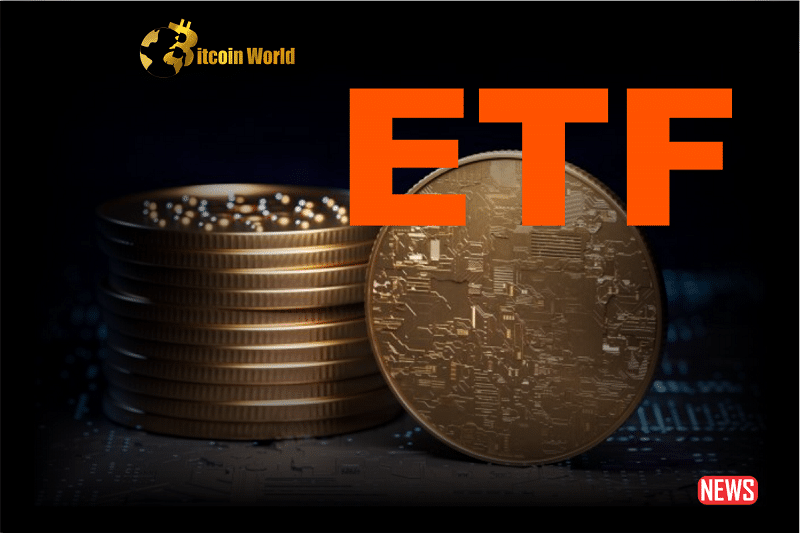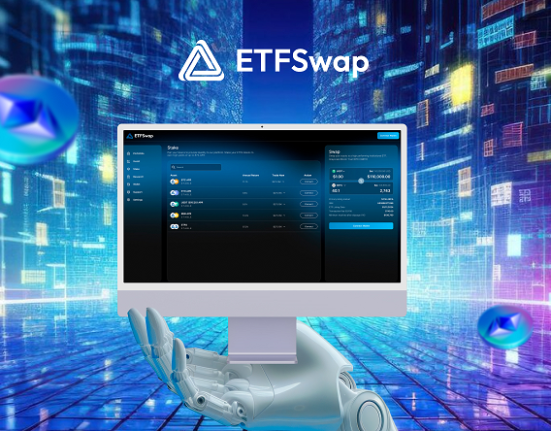The financial world is witnessing a pivotal moment as the concept of cryptocurrency exchange-traded funds (ETFs) gains traction. The recent 23-page report on the subject has ignited a debate that goes beyond just market trends. While some experts view crypto ETFs as a promising evolution that could propel the market into maturity and innovation, others express reservations about their potential downsides.
The rise of crypto ETFs is no longer a speculative matter—it’s a tangible movement reshaping the investment landscape. An excellent example lies in Canada, where the Purpose Bitcoin ETF amassed over $400 million within two days of its launch. This rapid success echoes the starter pistol in a race, signaling institutional investors to join the marathon with crypto ETFs as the starting block.
However, there’s a faction that remains skeptical about the benefits of crypto ETFs. Detractors argue that Bitcoin-linked ETFs may exacerbate issues prevalent in centralized exchanges. Their primary concern stems from the inability to withdraw the underlying instrument, essentially depriving holders of Bitcoin’s fundamental advantage: complete control over their funds without the need for trust.
Amidst these debates, the true potential of crypto ETFs is veering toward a domino effect, primed to trigger transformative shifts in the financial realm. BlackRock, a financial behemoth, managed around $3 trillion in ETF assets as of March 2023, spanning stocks, bonds, and commodities. The approval of crypto ETFs signifies more than mainstream acceptance—it signals a conduit for market maturity, stability in pricing, and a catalyst for innovation. Similar to how the inception of the first ETF in 1993 diversified the landscape, crypto ETFs could potentially pave the way for an array of digital assets and decentralized finance (DeFi) tokens.
Yet, as with any substantial change, the road to widespread acceptance isn’t devoid of obstacles. Critics’ concerns are not unfounded, particularly regarding Bitcoin-linked ETFs’ potential drawbacks. The inability to withdraw underlying assets poses a significant risk for investors who value autonomy and financial independence.
The push for crypto ETFs also fuels an increased demand for institutional-grade custody solutions. As traditional financial institutions venture into the crypto sphere, the necessity for robust custody technology and investor protection standards surges. This trend is evident in the surge of applications for Ether futures ETFs in the U.S., hinting at a new era where established custodians support the transition into Custody 3.0—a phase marked by active participation in the decentralized economy.
Amid the rapid expansion of the crypto custody market, predictions suggest a compound annual growth rate of 26.7% through 2028, propelled by evolving services and an intricate web of connectivity to on-chain platforms and DeFi applications. The key lies in building comprehensive services on a strong operational framework, effectively integrating digital assets into business operations within regulatory boundaries.
Regulatory hurdles persist, particularly in the United States. While concerns about fraud and market manipulation have hindered the approval of crypto ETFs, a global trend toward clearer regulatory frameworks outside the U.S. is emerging. Locations like Singapore, Hong Kong, the United Arab Emirates, and Europe are paving the way for strategic digital asset hubs, fostering a transparent and secure environment that benefits both the industry and its participants.
Inevitably, the domino effect brought about by crypto ETFs represents more than just a shift; it’s a revolution. This transformation goes beyond monetary gains; it envisions a more inclusive, transparent, and efficient financial system. As the dominos fall, the time to embrace this crypto revolution is now—to be part of a changing landscape that holds the promise of broader market access and a more advanced financial reality.














